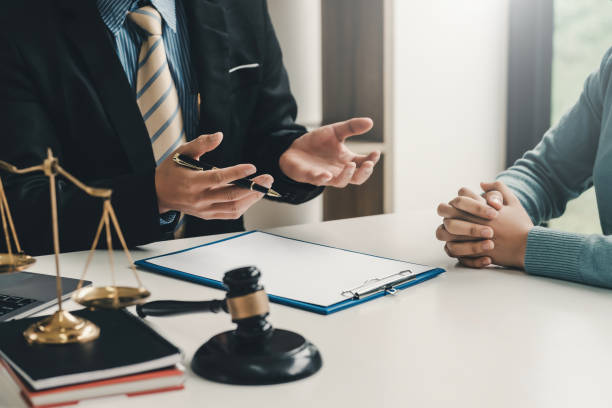Criminal law attorneys provide representation for defendants in cases involving a variety of offenses. They may serve as prosecutors at the local, state, or federal level as well as defense counsel.
Attorneys in this field have the unique advantage of being able to negotiate deals with prosecutors to reduce their clients’ charges or sentences. This skill set is increasingly valuable in today’s crowded courtrooms and jails. Looking for the best
Representation in Court
Representation in court is a critical element of criminal law attorney of breach of an intervention order work. It involves translating the complex language and processes of the court system into something easy-to-understand for clients, then translating that understanding into an action plan that best protects their rights and interests.
Melbourne criminal defense lawyers specialize in certain areas of law, which can affect their level of representation for clients. For instance, someone specializing in drunk driving cases or homicide trials may have established relationships with judges and prosecutors within that field of the law.
Though not always necessary, defendants who are accused of violent offenses or felonies should rarely represent themselves in a criminal trial. Doing so can cause delays and lead to miscarriages of justice. It is strongly advised that those accused do not represent themselves during these proceedings.
Preparation for Trial
Preparing for trial is a meticulous, time-consuming process. As the trial date draws near, legal teams scramble to gather evidence, formulate their theory of the case and craft an engaging narrative that will win over jurors’ hearts.
Criminal law attorneys strive to uphold the rule of law and guarantee fair treatment for all. Prosecutors and defense lawyers play a pivotal role in the justice system, advocating for individual rights and limits on government power.
At trial, prosecutors and defense lawyers explain to the jury what occurred in their case. Additionally, they use witnesses and evidence to prove that a defendant committed the offense charged.
Preparing for a trial can be an arduous, time-consuming, and overwhelming process. Even experienced attorneys may struggle with all of the preparations required. Therefore, having an organized strategy in place is critical so everything gets done on schedule.
Representation at Trial
Criminal lawyers have the primary responsibility of representing their clients during trial proceedings, either privately as a private practitioner or for the government as public defenders.
Even though many criminal cases do not go to trial, legal professionals still play an important role. They may need to negotiate with prosecutors to see if there is a plea deal available for their client.
The prosecution must prove a defendant guilty of the crime charged. If they can’t, then the defense must present evidence to help the jury decide if or not the accused are innocent of those charges.
The Sixth Amendment of the U.S Constitution guarantees every accused individual the right to counsel from a competent and experienced attorney.
Appeals
Criminal appeals attorneys serve clients in both state and federal courts. They examine cases to determine if there were any errors made by the trial court that could have affected your rights, as well as the outcome of the case.
When a trial ends in conviction, you have the option to appeal that verdict to higher courts such as the Court of Appeal or Supreme Court. Appeals are frequently filed by defendants who feel their constitutional rights were violated during the proceedings.
Appeals attorneys must present the facts and law of a case to the appellate court justices through a brief. This brief must persuade them that your lower court judge and jury made errors which warrant reversing your conviction or sentence.
Appeals necessitate in-depth analysis, extensive research and preparation, precise writing, and effective oral argument. Unfortunately, only a few lawyers are willing and able to take on the time-consuming and thankless work of appellate litigation.





